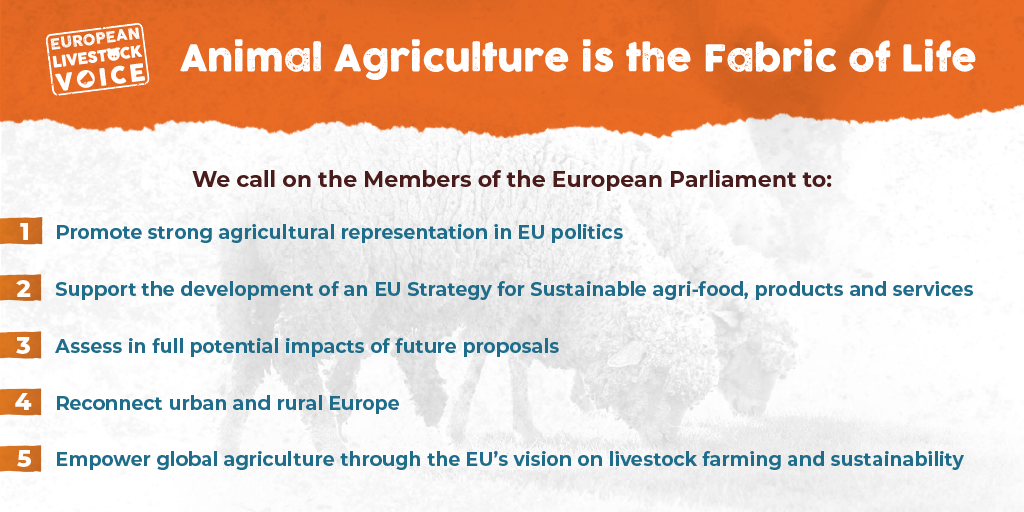European Livestock Voice partners release their 5-point manifesto
Animal Agriculture is the Fabric of Life
European Livestock Voice was launched in Brussels shortly after the 2019 European elections to raise awareness at European level on the realities of livestock farming, as the sector as a whole had observed increased misunderstanding of practices and simplistic proposals on where and how to make improvements. For five years, European Livestock Voice has been trying to increase understanding, raise concerns, inform those interested and, above all, reduce the gap in awareness between our barns and our institutions in Brussels. The 2019-2024 term of office has overall been a mixed bag when it comes to livestock farming. So we are looking forward and hoping for more understanding and more listening from the new Members of Parliament to be elected in June to our shared issues, which are so vital, not just for Europe’s rural communities, but for all of Europe’s citizens.
It’s time for the EU to recognise that agriculture, and more precisely the livestock value chain is about more than just farming. These are the connecting fibres for our entire lives. Whether Europe’s citizens are city-dwellers, rural tenants, or coastal denizens, we all rely on the livestock value chain every day of the year. Whether it’s for food, clothing, fertiliser, medicines, everyday care products, maintaining the landscape, or even travel, we all depend on farmed animals. We are convinced that animal-based farming, under all its forms, has brought, and will continue to bring, many benefits to Europe, and practices are constantly improving for an ever-more sustainable future for agriculture.
Drawing on the lessons of the past mandate, the member partners of European Livestock Voice are today presenting a 5-point action manifesto for the June elections. We are mainly calling for the development of a European strategy for a sustainable livestock value chain by the European Commission to ensure the necessary investment and support needed are fully predictable. In this respect, the most recent statistics presented by Eurostat this week, showing major reductions in goat and sheep numbers in particular, should give us all cause for concern.
To support this strategy, we are calling for agricultural leadership to be strengthened within the European institutions, and for impact studies with a feasibility component to be made more commonplace, to better assess the effects of trade-offs, which are so important in livestock farming. Mainstreaming education on agriculture must also be the basis from which we forge a more inclusive vision on sustainability, with every citizen given the responsibility to make choices that feed into this over-arching vision for a sustainable future for Europe.
